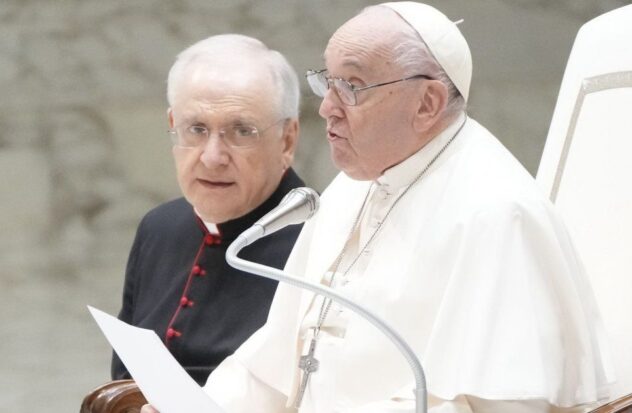VATICAN CITY.- He Pope Francisco He encouraged the young priests to reading and revealed his taste for great tragedies, in a letter published today – August 4 – by the Vatican.
“How can we speak to the hearts of men if we ignore, relegate or do not value those words with which they wanted to express and, why not, reveal the drama of their own life and feelings through novels and poems?” the pontiff stressed in his July 17 letter to future priests, published by the Vatican on Sunday.
In the extensive text, sprinkled with references to writers such as CS Lewis, Marcel Proust, TS Eliot and Jorge Luis Borges, Francis underlined the importance of reading novels and poems on the path of personal maturation, crucial not only for those who join the priesthood but for all Christians in general.
Noting that the apostle Paul was a great reader, Francis said that finding a good book can be like an oasis that takes one away from other activities that do not benefit humanity.
“This reading can open up new spaces of internalization that prevent us from locking ourselves in those abnormal obsessive ideas that haunt us irremediably,” he added.
“A good book, at least, helps us to weather the storm, until we achieve a little more serenity,” wrote the 87-year-old Argentine Jesuit.
Pope Francis: “I love tragic artists”
Francis regretted that literature was not considered essential in the formation of priests.
In a personal comment, Francisco recalled teaching high school literature at a Jesuit school when he was 28 and encountering resistance from students who did not want to read certain selections.
Arguing that even difficult or boring texts have value, the pope said people should approach reading with an open mind and a willingness to be surprised.
“For example, I love tragic artists, because we could all feel their works as our own, as an expression of our own dramas. Crying for the fate of the characters, we cry deep down for ourselves and for our own emptiness, our own shortcomings and our own loneliness,” he stressed.
Seeing life through the eyes of those who write the works leads to greater perspective and humanity, Francis wrote.
“We immerse ourselves in the concrete, inner existence of the greengrocer, the prostitute, the child who grows up without parents, the bricklayer’s wife, or the old lady who still believes she will find her prince charming,” he listed. “Perhaps during the reading we give advice to the characters that will later be useful to us ourselves,” he stressed.
FUENTE: AFP





